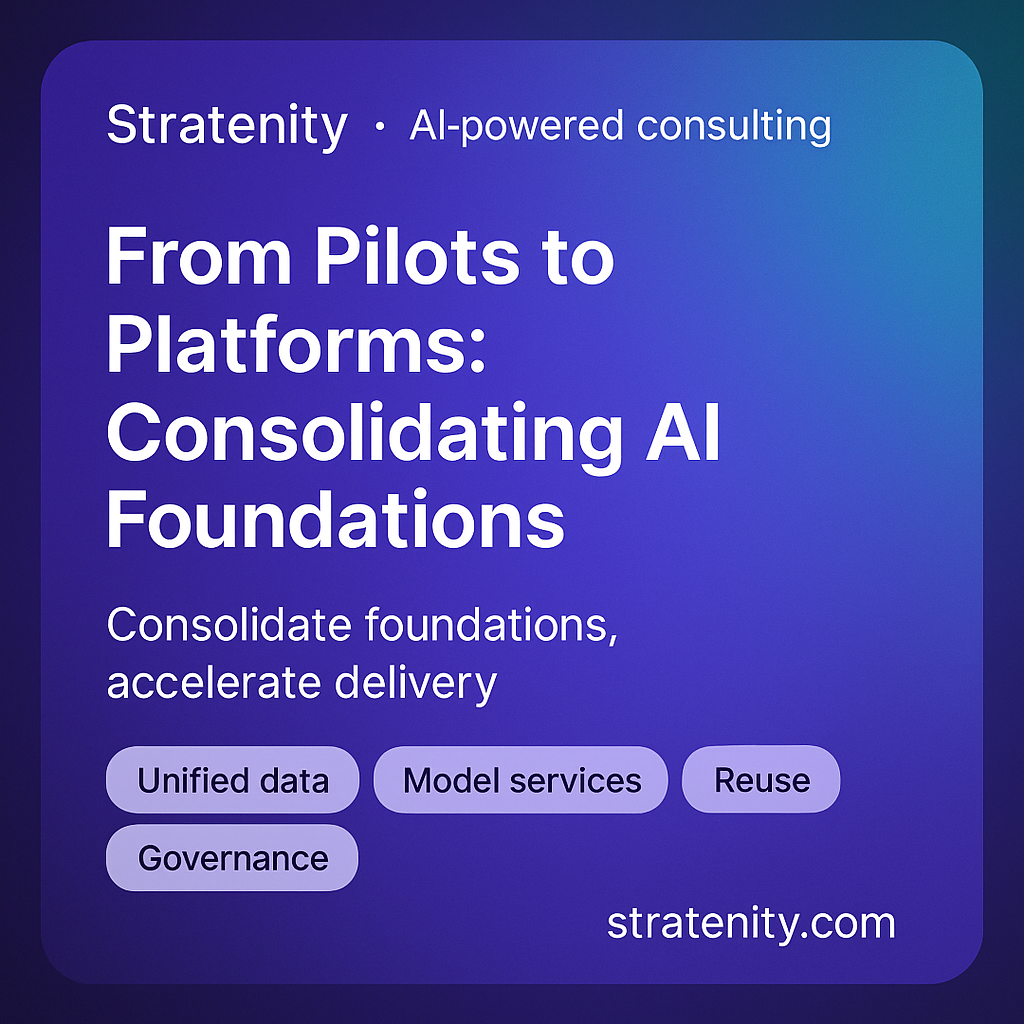
Cross-Industry • ~7–8 min read • Updated Apr 15, 2025
Context
Organizations that scaled dozens of AI pilots now face duplicate tooling, fragmented data flows, and inconsistent guardrails. A platform-first approach consolidates foundations, accelerates delivery, and lets business teams build on reliable “golden paths” instead of reinventing the stack in every line of business.
Core Framework
Move to a platform model built on four layers and clear product ownership:
- Unified Data & Features: Centralized data contracts, governed access, and a shared feature store to curb one-off pipelines.
- Model & Inference Services: Standardized model registry, deployment, observability, evaluation, and rollback; prompt/agent management for GenAI.
- Workflow & Reuse: Reusable components (ETL, vectorization, retrieval, evaluation), orchestration, and CI/CD templates (“golden paths”).
- Platform Enablement: Identity and access management, FinOps and cost guardrails, security controls, and developer experience (docs, SDKs, templates).
Recommended Actions
- Inventory & Rationalize: Catalog pilots, tools, vendors, and spend; identify redundancies and shadow platforms to retire within 60–90 days.
- Define the Platform Charter: Appoint a platform product owner; set SLOs (availability, latency, cost), intake rules, and a public roadmap.
- Stand Up Shared Services: Launch core services (feature store, registry, inference gateway, prompt store) with APIs and usage quotas.
- Establish Golden Paths: Provide pre-approved templates for common patterns (RAG, classification, forecasting, agents) and automate scaffolding.
- Fund Centrally, Meter Locally: Centrally fund the core platform; use consumption-based chargeback by team or product to drive efficient usage.
- Migrate & Decommission: Sequence migrations by value and risk; define cutover criteria and success metrics, then deprecate duplicative stacks.
Common Pitfalls
- Over-centralization: A platform that slows teams with heavy gates and bespoke approvals.
- No Product Discipline: Treating the platform as a project, not a product with owners, SLOs, and a roadmap.
- Underpowered Observability: Lack of telemetry for data drift, cost spikes, and safety events.
- Unclear Funding Model: Cost surprises without FinOps and transparent metering.
Quick Win Checklist
- Publish a one-page platform charter with owner, SLOs, and intake rules.
- Ship “hello world” golden paths for 2–3 common patterns with CLI/SDK templates.
- Create an internal platform status page and API catalog.
- Turn on basic FinOps: budget caps, alerts, and monthly chargeback reports.
Closing
Consolidating pilots into a shared AI platform yields faster delivery, safer operations, and better capital efficiency. Treat the platform as a product, measure it with SLOs, and give teams paved roads, not roadblocks.